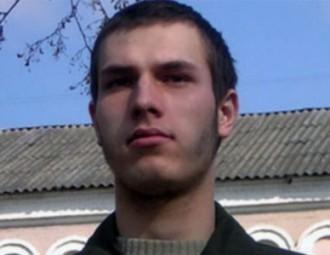Polish MEP expresses support for Belarusian political prisoner: 'We are with you!'

Filip Kaczmarek sent a letter to Yauheni Vaskovich and asked the Belarusian Red Cross to sort out the situation the young man is facing now.
“I am bowing my head to your courage and inflexible will in fight for your principles. I would like you to know that Europeans of good will, including me, struggle for freedom, democracy and human rights in Belarus,” quotes Belsat the words of the Polish MEP.
Yauheni Vaskovich, an imprisoned member of Belarusian Christian Democracy (BCD), has spent 247 days in a disciplinary cell since October 2011. “Spending even several days in a punishment cell is very dangerous for a human being and might lead to deadly repercussions. I believe that keeping Yauheni in a disciplinary cell is torture aiming at making him sign a petition for pardon,” Filip Kaczmarek, the member of Polish Parliament, Chairman of the European Parliament’s Delegation for relations with Belarus, wrote in his address to the Red Cross.
“Hold on and don't make surrender of your principles. We are with you! Long live Belarus!” the Head of The European Parliament delegation for relations with Belarus stressed.
Let us recall that on May 18, 2011 Babruisk court sentenced activists Yauheni Vaskovich, Pavel Syramolatau and Artsiom Prakapenka to different terms of imprisonment (up to 7 years). Based on articles 218(3) and 339(2) of the Belarusian Criminal Code, the three men were charged with ‘intended acts of vandalism’ and ‘purposeful acts causing major damage’. They were adjudged guilty in committing arson of the local building of the KGB. No one was hurt in the incident.
Earlier the European Parliament has adopted its Recommendation on the EU’s policy towards Belarus reiterating the need for the unconditional release of all political prisoners.
-
03.01
-
07.10
-
22.09
-
17.08
-
12.08
-
30.09



























